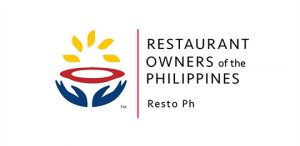
In pre-pandemic Metro Manila, the local restaurant industry was an unstoppable force. All eyes were on the exciting Philippine culinary scene, with global players coming in to try their luck in the country. It was the best of times, until the COVID-19 pandemic came and in an instant, the loud din of busy restaurants got replaced by deafening silence.
 What was initially a “community quarantine” slated for a couple of weeks dragged on for months, and what were once thriving food and beverage businesses started permanently closing one-by-one. Eric Teng, the man behind Mango Tree, Genki Sushi, Cocina Peruvia, and Kureji Ramen restaurants, knew he had to spring into action.
What was initially a “community quarantine” slated for a couple of weeks dragged on for months, and what were once thriving food and beverage businesses started permanently closing one-by-one. Eric Teng, the man behind Mango Tree, Genki Sushi, Cocina Peruvia, and Kureji Ramen restaurants, knew he had to spring into action.
He is the president of the Restaurant Owners of the Philippines Association or RestoPh, which was created by big and small like-minded restauranteurs in the country. It was formed during the first Extended Community Quarantine (ECQ) and is currently 200 members strong representing 1500 restaurants. During these uncertain times, their mission is just as vague and all-encompassing, which is generally to act as a support group for members of the industry.
Their biggest project to date is when they provided 100,000 meals for frontliners and locally stranded individuals early in the pandemic. RestoPh also represents the industry in all discussions and preparations with the Inter-Agency Task Force on Emerging Infectious Diseases, the Department of Trade and Industry, and cabinet secretaries. They speak up as a collective to safeguard the interests of restaurants as tenants and work closely with mall owners to ensure their mutual survival.
It has been more than a year of the pandemic and the struggle continues. Teng admits that it has been quite the tedious balancing act. “It is a constant work in progress,” he imparts. “It’s is a constant struggle to overcome day to day difficulties brought about by the virus. Our main goal is about overcoming the pandemic and keeping everyone safe, (rather) than making money.”
“Let’s get vaccinated to be able to enjoy ourselves once again in your favorite restaurants.”
 Many of the safety protocols enforced in dining establishments were written in collaboration with RestoPh. However, Teng fears that the stigma of restaurants being an “unsafe place” will continue to linger long after lockdown has been lifted. “Contrary to public fear, restaurants and their staff have always been much stricter in following safety protocols than a friend’s house,” Teng says. “We encourage the public to visit their favorite restaurants once the situation has normalized.” And in this new “normalized” future, he envisions tables farther apart, smaller parties, and outdoor dining may become more popular. “Still, we are confident that things will go back to normal.”
Many of the safety protocols enforced in dining establishments were written in collaboration with RestoPh. However, Teng fears that the stigma of restaurants being an “unsafe place” will continue to linger long after lockdown has been lifted. “Contrary to public fear, restaurants and their staff have always been much stricter in following safety protocols than a friend’s house,” Teng says. “We encourage the public to visit their favorite restaurants once the situation has normalized.” And in this new “normalized” future, he envisions tables farther apart, smaller parties, and outdoor dining may become more popular. “Still, we are confident that things will go back to normal.”
That means, of course, when people feel safe enough to come out and gather in public spaces again. While having food delivered from your favorite restaurants might satisfy a craving, Teng points out that the food is but a fraction of the total dining experience. “We miss our familiar guests and we look forward to seeing everyone again.”
In the meantime, Teng and RestoPh will continue to offer their support as they weather the storm together. Right now, it truly is about survival in every sense of the word. And, when the world is ready, our beloved restaurants will hopefully be there to provide the joys and comforts we were used to. “Restaurants are an essential part of normal life,” Teng reminds. “Let’s get vaccinated to be able to enjoy ourselves once again in your favorite restaurants.”


Recent Comments